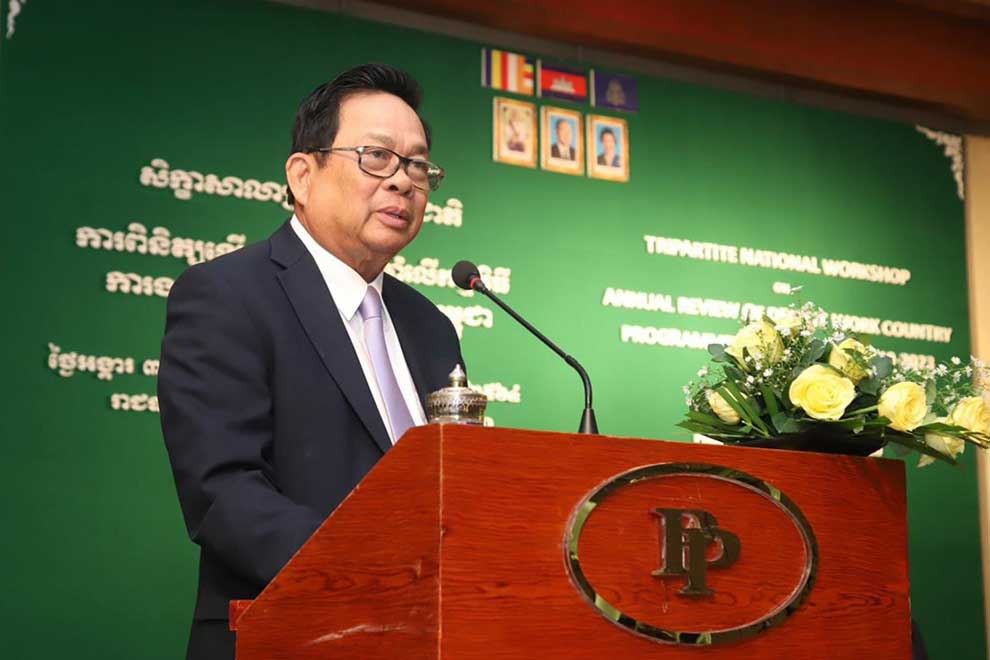
Labour minister Ith Sam Heng says training will lead to jobs. Photo supplied
Minister of Labour and Vocational Training Ith Sam Heng said the increase of economic diversification, productivity, competition and digital economy development has enabled men, women, youth and many vulnerable people to get a healthy and safe job and receive benefits from social protection services in a sustainable, transparent and equitable way.
Sam Heng was speaking at a national workshop entitled “Decent Work Programme in Cambodia 2019-2023” in Phnom Penh on November 3.
“The ministry will encourage the practice of a strategic plan for employment development and vocational training to achieve desirable goals including the development of job conditions and harmonisation of professional relations,” he said.
“[Other goals include] the modernisation of technical and vocational education and training systems, maintaining and enhancing careers in the country and abroad, and the development of social security and strengthening general services.
“We cited experiences and found new innovations to respond to situations, especially the Rectangular Strategy of government since Phase I until Phase IV. It is a strategy that ensures economical and social development.”
In a Facebook post, the ministry said Cambodia has utilised work programmes in four phases since 2005. Phase V (2019-2023) will look to help Cambodia achieve its development goals by 2030.
According to its 2019 work statistics, about 10 million Cambodians are employed. Of the number, over 1.5 million people work in the formal economy, 2.2 million in the informal economy and four million in the agricultural sector. There are 500,000 public officials and 1.3 million migrant workers.
Coalition of Cambodian Apparel Workers Democratic Union (CCAWDU) president Ath Thorn told The Post on November 4 that Cambodians will more easily get jobs with more vocational training.
He said the government supported vulnerable people by providing cash handouts to those who lost their jobs. Meanwhile, Thorn said the job market has not responded to worker needs.
Out-of-work vulnerable people, he said, need a clear path to receive benefits, including access to vocational and training schools.
“[The government] must organise proper standard laws and practise them properly,” he said.











